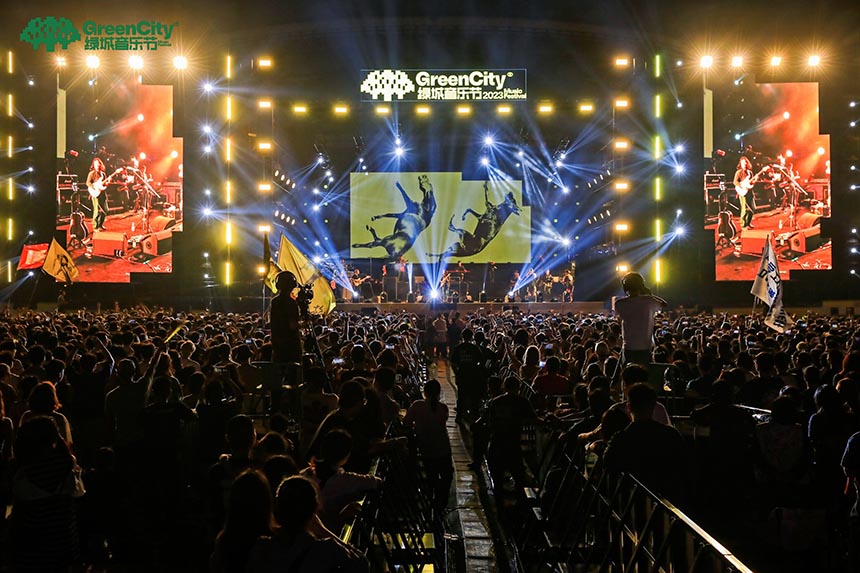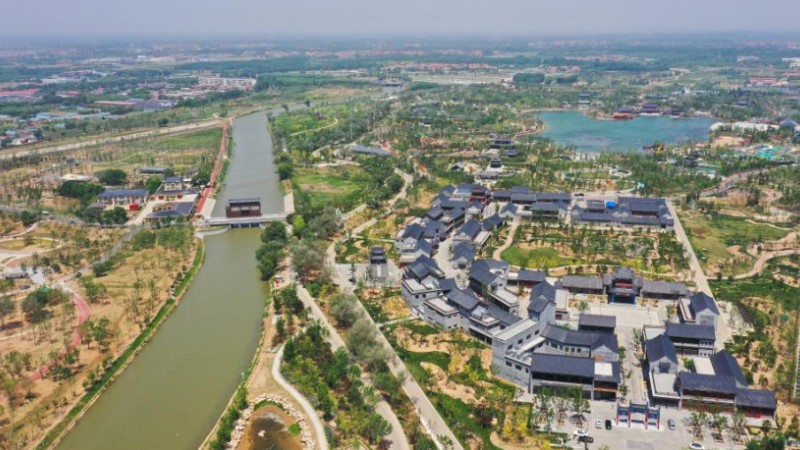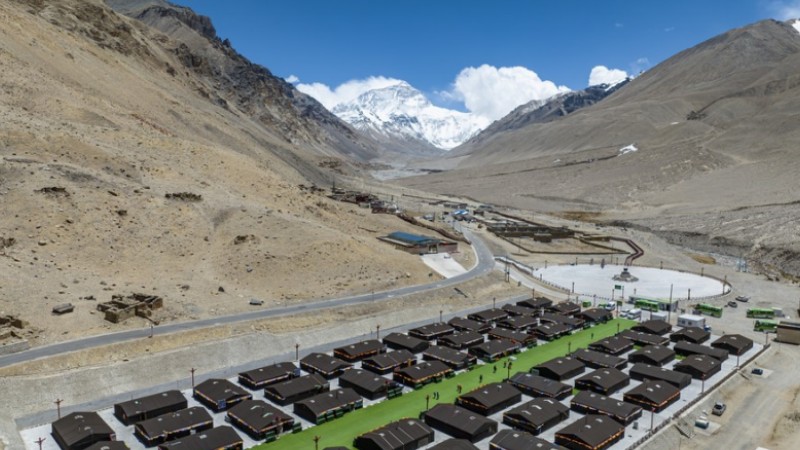Music festivals inject vitality into culture, tourism
Music festivals, which see the wide participation of young people, are now being brought to more second- and third-tier cities, vigorously promoting the recovery of consumption in the tourism and culture sectors.
Figures indicated that during the five-day May Day holiday this year, 40 music festivals were held in 17 provinces and regions in the country, a remarkable rise from the same period of last year.

Photo shows a view of the first GreenCity Music Festival held in Nanning, capital of south China's Guangxi Zhuang Autonomous Region from April 21 to 22, 2023. (Photo courtesy of the Outstanding Power Media)
Zhang Chunxiao, vice president of the Taihe Music Group, said the number of music festivals increased because citizens have a great demand for cultural and recreational activities, and that many music festivals which had been canceled or postponed have started to resume.
Fan Zhihui, founder of Music Pioneer, believes that as traveling to another city to watch a music festival has become an option for many people, the model of "music plus tourism" can attract tourists to a place in a short period of time, which helps boost consumption in the local cultural and tourism sectors. Music festivals are also a good way to boost a city's cultural charm.
Zhang Chunxiao said more and more music festivals are held in second- and third-tier cities because these cities have a strong desire to expand cultural and tourism consumption and have rolled out policies to support the sectors.
"Music festivals can help increase publicity for a city and enhance the city's influence," said Zhang Qian, an associate professor at the School of Music and Recording Arts of Communication University of China in Beijing.
Music festivals not only ignite music fans' passion, but also cause a craze for cultural and tourism projects. Statistics from the China Association of Performing Arts indicated that during the May Day holiday, more than 50 percent of people buying tickets for music festivals watched performances in other cities. The consumption in transportation, accommodations, dining and other businesses related to the music festivals held during the same period surpassed 1.2 billion yuan ($170 million).
Music festivals bring new perspectives to the development of culture and tourism.
The Water Music Festival in Hengdian, which is a major film and television program production center in east China's Zhejiang Province, has been held for three consecutive weeks.
During the event, the number of people entering the Hengdian World Studio exceeded 70,000 and bookings to the tourist spot saw a maximum single day increase of 250 percent, according to Fang Yuan, who is in charge of marketing at online music service provider Kugou, which launched the Water Music Festival in Hengdian together with Kugou's live-streaming platform.
The 2023 Huang Bo Hai Midi Festival in Yantai city, east China's Shandong Province a month ago is expected to make rock music a new calling card of the city.
Yantai will work with Midi, one of China's first original music festival brands, to hold music festivals, contests, and music camps, and organize training for students.
Music festivals are an important driving force for the culture and tourism sectors to gain steam. Many people come to music festivals not just for music, as music festivals provide places for them to take pictures. They are also important venues for people to get together and socialize with friends, said Zhang Qian.
Photos
Related Stories
- Music festivals return following successful battle against COVID-19
- Music festivals thrive during May Day holiday in China
- Highlights of 2nd day of NOS Alive 2019 music festival in Lisbon, Portugal
- Chorus art week of Huanglong music festival held in Zhangjiajie, China's Hunan
- 2015 Hong Kong Youth Music Festival to kick off next month
Copyright © 2023 People's Daily Online. All Rights Reserved.









